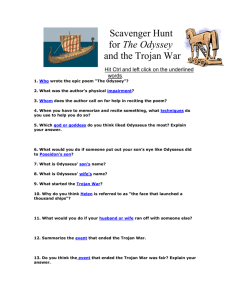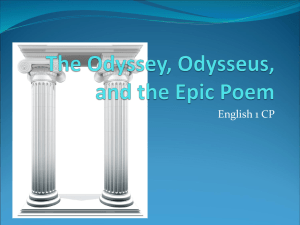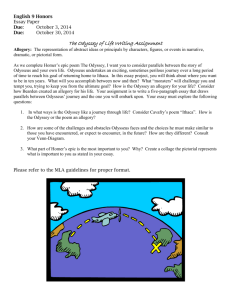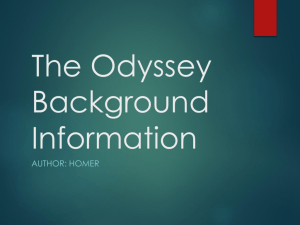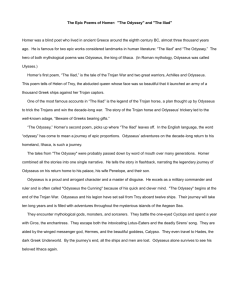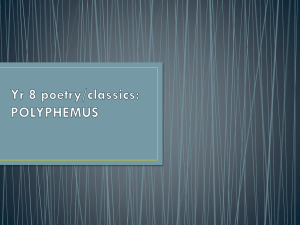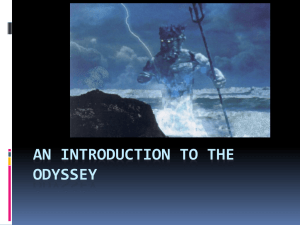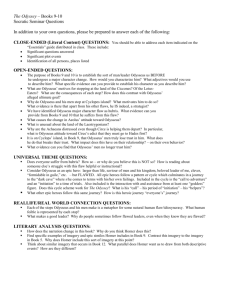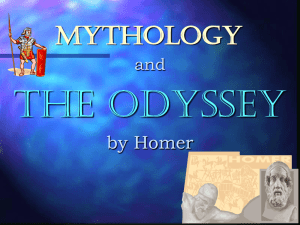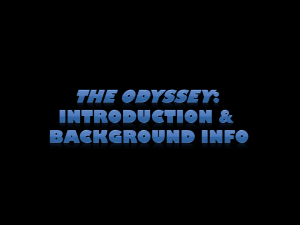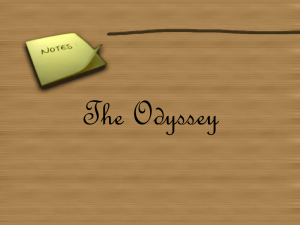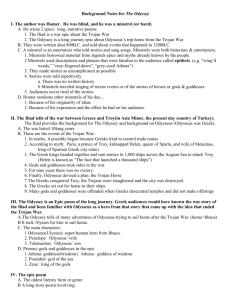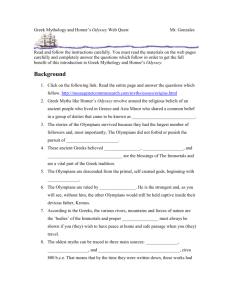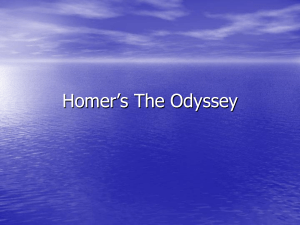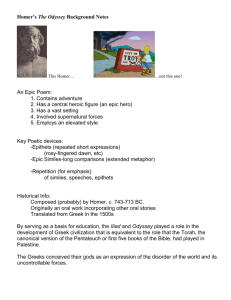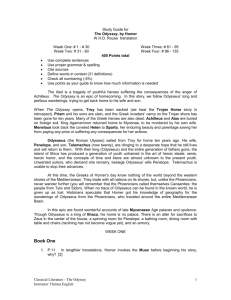The Odyssey Introduction Notes
advertisement
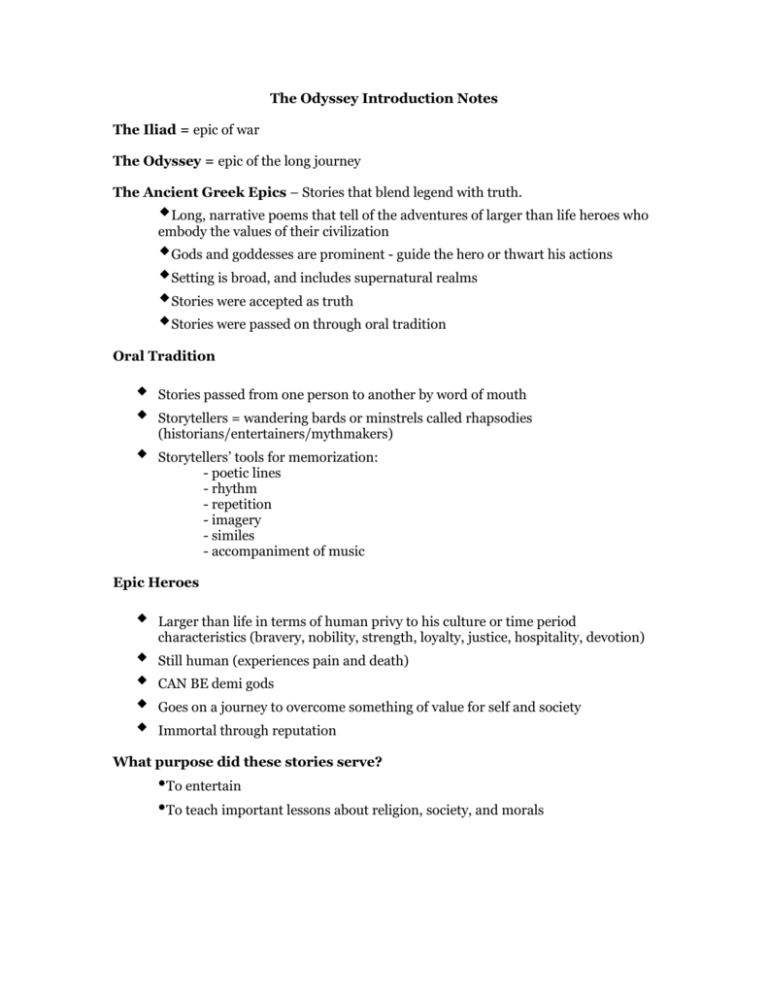
The Odyssey Introduction Notes The Iliad = epic of war The Odyssey = epic of the long journey The Ancient Greek Epics – Stories that blend legend with truth. Long, narrative poems that tell of the adventures of larger than life heroes who embody the values of their civilization Gods and goddesses are prominent - guide the hero or thwart his actions Setting is broad, and includes supernatural realms Stories were accepted as truth Stories were passed on through oral tradition Oral Tradition Stories passed from one person to another by word of mouth Storytellers = wandering bards or minstrels called rhapsodies (historians/entertainers/mythmakers) Storytellers’ tools for memorization: - poetic lines - rhythm - repetition - imagery - similes - accompaniment of music Epic Heroes Larger than life in terms of human privy to his culture or time period characteristics (bravery, nobility, strength, loyalty, justice, hospitality, devotion) Still human (experiences pain and death) CAN BE demi gods Goes on a journey to overcome something of value for self and society Immortal through reputation What purpose did these stories serve? •To entertain •To teach important lessons about religion, society, and morals Themes •Loyalty, devotion, and fortitude to home and self •The Greek ideal of a strong body and a strong intellect •The wandering hero •The triumph of good over evil •Obedience to the laws of the gods Terms to Know Epithet: compound adjectives describing a person, place or event. had the right meter or number of syllables to complete a line. Swift-footed Achilles Sparkling-eyed Athena Epic Simile: a simile of great length and detail, going on for several lines Served to emphasize a character’s thoughts or feelings or a situation in relation to everyday situations in medias res (Latin) in the middle Narrative Poem a poem that tells a story and includes all elements of a story Rhythm the pattern or flow of sound created by the arrangement of stressed and unstressed syllables in a line of poetry Refrain the repetition of one or more lines in each stanza of a poem Speaker the voice that talks to the reader, similar to the narrator in fiction Stanza a grouping of two or more lines in a pattern that is repeated throughout Style a poem (comparable to a paragraph in prose writing) the particular way in which a piece of literature is written. Style is not what is said but HOW it is said. Symbol a person, a place, an activity, or an object that stands for something beyond itself Prominent gods/goddess Trojans Greeks •Aphrodite •Ares •Apollo •Artemis •(Zeus) Hera Athena (Odysseus’ “right hand lady”) Poseidon (Odysseus’ nemesis) Allusions The face that launched a thousand ships Beware of Greeks bearing gifts A Trojan Horse The Odyssey •Odysseus’ last year of his journey home from the Trojan War 10 year Trojan War: Legend claims the war began with the abduction of Helen Odysseus reluctantly joined the Greeks in battle Odysseus was the last of the Greek heroes to return home 10 year Journey was plagued with obstacles 1 year with Circe (goddess/enchantress; daughter of Helios) 7 years with Calypso (goddess/nymph; in love with Odysseus) Lotus Flowers (narcotics that caused peaceful apathy) The Cyclops (Polythemus; son of Poseidon) The Sirens (femme fatales) Scylla (nymph turned 6 headed beast by Amphitrite or Circe) <“between Scylla and Charybdis” – between a rock and a hard place> Charybdis (daughter of Poseidon turned fiery, teethed whirpool by Zues) Odysseus’ personal journey Search for identity Protect Achaeans Overcome temptation Overcome pride Penelope’s personal journey Search for identity Self control; pride, respect Loyalty to Odysseus Telemachus’ personal journey Search for identity Let go of youthful nature/immaturity Self-control; pride; respect
